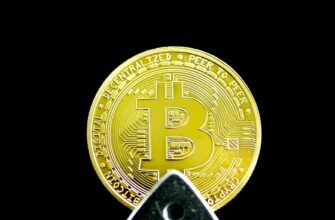Why Anonymous Account Backup Matters More Than Ever
In today’s digital landscape, backing up your accounts anonymously isn’t just for activists or whistleblowers—it’s essential for anyone valuing privacy. Data breaches exposed 6 million records daily in 2023, and corporations routinely monetize your information. Anonymous backups shield your identity while preserving critical data from emails to financial records. This tutorial reveals practical methods to achieve true anonymity during backups, ensuring your personal details stay disconnected from your archived data.
Step-by-Step Anonymous Backup Tutorial
- Prepare Your Environment: Install a reputable VPN (like Mullvad or ProtonVPN) and activate its kill switch. Never initiate backups without this layer.
- Create Anonymous Credentials: Use temporary email services (e.g., Guerrilla Mail) and pseudonyms to register new accounts. Avoid any personal identifiers.
- Encrypt Before Upload: Encrypt files locally using VeraCrypt or Cryptomator. Create containers with AES-256 encryption before transferring data.
- Choose Storage Wisely: Opt for zero-knowledge cloud services like Tresorit or decentralized options like Storj. Avoid mainstream platforms requiring phone verification.
- Conduct the Backup: Upload encrypted files through your VPN connection. Disable metadata generation in settings where possible.
- Verify & Disconnect: Confirm file integrity, then clear browser caches and terminate all connections. Never stay logged in.
Top Anonymous Backup Tools Compared
- Cryptomator: Open-source encryption for cloud storage. Integrates with Dropbox/Google Drive while keeping data opaque to providers.
- Proton Drive: End-to-end encrypted Swiss-based storage. No phone number required for basic accounts.
- Veracrypt: Creates encrypted virtual disks ideal for local backups on external drives.
- Syncthing: P2P synchronization tool that never stores data on third-party servers.
- Tor Browser: Essential for accessing storage services without IP leakage during setup.
Critical Anonymity Preservation Techniques
- Always use cryptocurrency (Monero preferred) for paid services to avoid payment trails
- Regularly rotate backup accounts and credentials every 90 days
- Never backup from devices containing SIM cards or IMEI identifiers
- Employ virtual machines for backup operations when possible
- Scrub metadata from files using tools like ExifTool before encryption
FAQ: Anonymous Backup Essentials
Q: Is anonymous backup legal?
A: Absolutely—backing up your own data anonymously violates no laws. However, check local regulations regarding encryption tools.
Q: Can free services provide true anonymity?
A: Limited free tiers work for small backups, but paid anonymous services (accepting crypto) offer better security and capacity.
Q: How often should I perform anonymous backups?
A: For critical accounts, weekly encrypted backups are ideal. Combine with quarterly credential rotation.
Q: What if I lose my encryption key?
A: Anonymous backups mean zero recovery options without keys—store them offline using analog methods like steel wallet engravings.
Q: Does VPN guarantee complete anonymity?
A: VPNs are foundational but insufficient alone. Combine with encryption, anonymous accounts, and metadata stripping for true protection.








